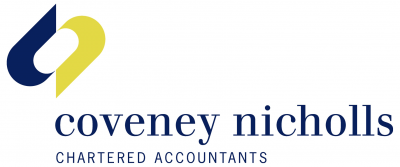If you’re yet to invest in construction accounting software, now’s the time to do so: cloud accounting is the future of the construction industry.
But with so many cloud-based solutions out there to choose from, how are you supposed to know which one is right for you?
We understand how busy you are, so we’ve written this guide to summarise the top construction accounting software solutions for your business.
Benefits of construction accounting software
Let’s begin by answering the question: ‘what is cloud accounting software?’
‘Cloud’ simply means ‘online’. So, with cloud accounting, you’re doing all your financial management — income, expenses, banks reconciliation, etc. — online.
Putting your figures online has a lot of benefits:
- Reducing manual data entry. Cloud accounting software can capture and import data from various sources after you set up some automations. It can also automatically generate and send invoices, and categorise project costs.
- Stay in the loop. With cloud accounting, you can always stay on top of your finances and view them in real-time with a mobile app.
- Generating reports. You can use tools to create reports that you can use to assess your financial health and performance.
- Tax compliance. According to the Making Tax Digital rules, VAT must be done online. One solution is to use cloud accounting software. Online accounting also makes construction industry scheme (CIS) calculations a breeze!
So, now we know what cloud accounting software is, let’s look at the top software providers and their offerings.
Xero
Xero is one of the main cloud accounting brands, and for good reason. With it, users can:
- Get a centralised view of their finances, track cashflow and monitor financial health.
- Match bank transactions and reconcile data with bank feeds.
- Create invoices and send them to customers.
- Track the payment status of invoices and send payment reminders.
- Generate financial reports, including profit and loss, balance sheet, and cash flow statements.
Xero is also easy-to-use and available on iPhone and Android. Its detail-rich dashboard displays everything you need at a glance, while Xero offers unlimited user support at no additional cost.
For the construction industry, Xero offers automatic CIS calculations and reports built-in from its basic offering. Receipt capture is also available with every plan — that’s supported by HubDoc, so it’s quite advanced!
However, some reviews suggest Xero isn’t well-suited for bigger businesses and has limited financial analysis capabilities. Meanwhile, the most basic plan is quite limited — you can only send 20 invoices and 5 bills per month.
Then there’s the fact that claiming expenses, tracking projects and analytic tools come with an extra charge as add-ons. Unfortunately for the construction industry, there is an extra cost for CIS submissions with Xero (£5 per month).
Sage
Sage is another well-known cloud software company. Like Xero, you can use it to create and track invoices, manage cashflow, automate repetitive tasks, and record revenue and expenses. You can also submit VAT returns to HMRC with it.
Where Sage stands out is how much it offers through its cloud packages as standard: CIS management and submission, and reports automation are part of its standard plan — as opposed to Xero that offers them as add-ons.
Meanwhile, Sage has a great customer support system, including phone lines. It also boasts limitless invoicing and bills, regardless of the plan.
However, Sage’s starter plan lacks some crucial features, such as receipt capture, which is part of its standard and ‘plus’ offerings. This wouldn’t necessarily be a problem if Sage wasn’t as expensive as Xero!
Moreover, Sage has quite basic expense tracking. For instance, you can’t categorise expenses automatically, which may slow you down.
Quickbooks
Finally, there’s QuickBooks, which offers a lot of what Sage and Xero also do. However, what’s great about QuickBooks is how they offer five plans, rather than three, so your construction business should be able to choose a plan that has exactly what you need — no more overpaying for software you don’t use. Quickbooks is also very accessible and offers brilliant customer support.
However, the software is very limited in the fact none of its plans offers unlimited licences — unlike both Xero and Sage.
Need help picking your software?
Looking for more detail about Sage, Xero and Quickbooks and which — if any — is right for you?
We’re a provider of all three of the softwares we’ve talked about in this article and can help you pick your new software. We know all the ins and outs, and can help you get set up, too.
Talk to us about construction accounting software.

